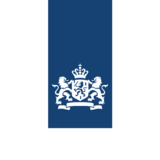Community / Land projects / CO-Making Women Access to Land & proper
CO-Making Women Access to Land & proper

€0
02/22 - 08/22
Completed
This project is part of
Implementing Organisations
Donors
Data Providers
General
In Uganda, women’s land and property rights are not easily realizable despite having highly rated gender sensitive constitution. This is because of deeply rooted patriarchal attitudes in society that often relegate women’s land right to merely user rights and impracticalities in implementing well designed laws. Ironically it is women (75% - 80%) who produce foods for consumption in Uganda andbeyond. The situation would be different if they enjoy all bundles of land rights, i.e. ownership, control and user rights. In other words, production would exponentially increase and then eliminate hunger and poverty. In fact according to UBOS, 2014, women’s ownership and control of land directly increases production by 40%. Although the Constitution of the Republic of Uganda, 1995 as amended, provides for ownership of land by every Ugandan citizen, there is still a huge gender gap between the women and men of Uganda inownership of land as only 20% of the women own land according to the Human Development SurveyUnited Nations Development Fund Report, 2019. During the Wellspring Philanthropic Fund (WPF) grant for the year 2020/2021, Oxfam Uganda engaged in Generation Equality Forum (GEF); the Beijing +25 process since 2019, which included supporting and coordinating civil society engagement at national and regional levels, rendered support to grassroots women this year in collaboration with the Gender Is My Agenda Campaign (GIMAC) network and International Land Coalition (ILC, we organised an online meeting toinfluence adoption of the Kilimanjaro Charter of Demands, as a reference for the ambitions of women in Africa with regard to land and also as a guide for land governance in African countrieswhich was attended by representatives of the African Union LandPolicy Centre and United Nation Economic Commission for Africa, supported the Continental Network of Indigenous Women of the Americas (ECMIA) to advocate for the rights of indigenous women through theCEDAW process, continued our work to ensure the international and regional commitments that safeguard women’s land and natural resource rights are implemented in countries, continued our engagement on implementation of the Sustainable Development Goals, focused on developing gender transformative leadershipinorder to ensure sustainable change and to combat both individual and systemic barriers with regard to women’s land and natural resource rights, facilitated documentation of women’s land rights cases and stories to support our campaigning, such as LandRights Now, the Kilimanjaro women’s initiative campaign and the Land Inequality campaign, currently being formulated. Our work for the year 2021/2022 will continue the work on Beijing +25 through working with Action Coalition leaders such as the Huairou Commission and FEMNET for the next five years of the Generation Equality Action Coalitions. We will continue to promote gender transformative leadership to strengthen women’s land and natural resource governance, working with countries to use and adaptexisting tools. We are training CSOs on parallel reporting, which enables them to engage with their national governments on implementation of and reporting on SDG land rights targets. Around the HLPF we create platforms for CSOs to report and build momentum, highlighting the importance of land rights in the SDGs so as to achieve the SDGs and will be easy to navigate, facilitate accessing data on land tenure, and accompanying narratives/stories that elaborate on progress made based on the data presented.We willcontinue our work with the Continental Network of Indigenous Women of the Americas (ECMIA) focusing on strengthening indigenous women’s position in CEDAW, this grant will continue to play a key role in supporting Oxfam’s leadership and coordinationof international advocacy work, We will continue to work with allies to coordinate and promote campaigns such as Land Rights Now, Kilimanjaro Campaign and Land Inequality. For the coming year our work will support all three campaigning efforts, with a focus onLand Inequality.



